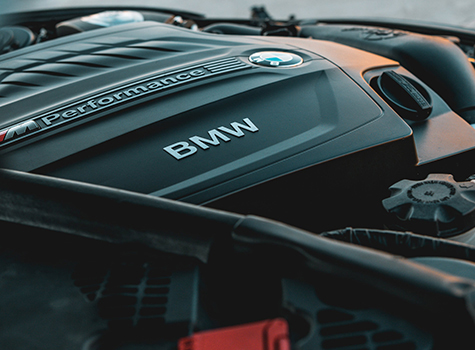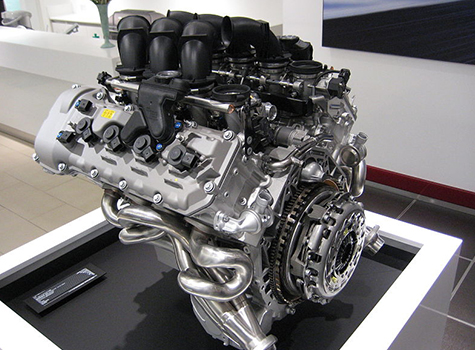BMW Engine Replacement: Everything You Need to Know
BMW Engine Replacement Guide: Read this before making a hasty decision.
BMW vehicles are renowned for their exceptional performance, luxurious amenities, and cutting-edge engineering. However, even the most meticulously maintained BMW can succumb to engine problems over time. If your BMW’s engine is failing, you may be facing the prospect of a BMW engine replacement, a significant investment in both time and financial resources.
This comprehensive guide delves into the intricacies of BMW engine replacement, equipping you with the knowledge to navigate this process effectively. From identifying the signs of a failing engine to selecting the most suitable replacement option and understanding the repair procedure, this guide will empower you to make informed decisions regarding your BMW engine replacement.
Understanding BMW Engine Replacement
The concept of engine replacement in a BMW is not merely a repair task but a significant event in the life cycle of your vehicle. It’s essential to grasp the breadth of this undertaking; it is not an over-the-counter quick fix but a detailed process that involves precise expertise and understanding of BMW’s engineering excellence. The first step is to identify the telltale signs that your engine might be failing, such as unusual noises, decreased performance, and increased emissions.
Signs Your BMW Needs a New Engine
The first crucial step in addressing a potential BMW engine replacement is to recognize the symptoms that indicate a failing engine. Here are some common telltale signs that warrant immediate attention:
- Excessive Oil Consumption: If your BMW is consuming oil at an alarming rate, it could signal worn piston rings or valve seals, allowing oil to leak into the combustion chamber.
- Uncharacteristic Noises: Knocking or rattling sounds emanating from the engine are often indicative of worn internal components, such as bearings or rod knock.
- Reduced Power and Performance: A noticeable loss of power or acceleration can stem from various engine issues, including compression loss, valve problems, or fuel injection irregularities.
- Visible Exhaust Emissions: Blue smoke from the exhaust typically indicates burning oil, while white smoke suggests coolant leakage into the combustion chamber.
- Illuminated Check Engine Light: While not always a definitive sign of a failing engine, an illuminated check engine light can signal a variety of engine-related issues that should be investigated promptly.
If you observe any of these symptoms, it is imperative to have your BMW inspected by a qualified mechanic to determine the root cause of the problem and assess the need for a potential engine replacement.
Choosing the Right Replacement Engine
Once the diagnosis of a failing engine is confirmed, the next step is to select the most suitable replacement engine for your BMW. Three primary options are available when it comes to BMW engine replacement:
- New Engine: A new engine, while the most expensive option, offers the best performance and warranty coverage.
- Remanufactured Engine: A remanufactured engine is a used engine that has been meticulously disassembled, cleaned, and rebuilt using new or reconditioned parts. It is a more affordable alternative to a new engine but may not come with the same extensive warranty coverage.
- Used Engine: A used engine, while the most economical option, carries the highest risk, as you may not have access to its history or condition.
The most appropriate option for you will depend on your budget, your specific needs, and your vehicle’s mileage. It is crucial to carefully weigh the pros and cons of each option before making a decision.
The Replacement Process
The process of replacing a BMW’s engine is a meticulous and detailed operation. It begins with the removal of the old engine, a step that requires precision and an understanding of BMW’s complex systems. Once the old heart of your vehicle is out, the installation of the new engine commences, following a methodical approach to ensure that every component fits and functions as intended.
Cost Considerations
Delving into the financial aspect of BMW engine replacement is a significant part of the planning process. The cost can be influenced by a variety of factors, such as the choice between a new or a used engine, labour charges, and any additional parts or updates required. Having a clear budget in mind will help manage the overall expenses of the replacement.
Warranty and Guarantee
When you’re investing in a new engine for your BMW, the warranty and guarantees that come with it are not just add-ons but essential assurances. These warranties protect you from unforeseen defects and provide peace of mind. Understanding the extent and limitations of these warranties is crucial before making a decision.
Maintenance Post-Engine Replacement
After the successful installation of a new engine, maintaining your BMW correctly is key to ensuring the longevity and performance of the engine. Regular maintenance checks, timely oil changes, and adherence to BMW’s service recommendations will help in keeping your car in pristine condition post-replacement.
Common Mistakes to Avoid
Navigating through the BMW engine replacement process can be fraught with potential missteps. Common mistakes include neglecting to check the compatibility of the new engine, skimping on quality parts, or rushing through the installation process. Being aware of these pitfalls and how to avoid them can save time, and money, and ensure a smoother transition to a new engine.
Professional vs. DIY Replacement

Deciding between a professional replacement and attempting a DIY project is a critical choice for BMW owners. While a DIY approach may seem cost-effective, the complexities involved in a BMW engine replacement often necessitate the expertise of a professional mechanic who is familiar with the intricacies of BMW engineering.
The Role of Technology in Engine Replacement
Technology plays an ever-increasing role in the process of engine replacement. With advancements in diagnostic tools and installation techniques, it’s essential to stay abreast of the latest technological aids that can ensure a more efficient and effective replacement process for your BMW.
Preparing for the Future
Once your BMW engine replacement is complete, it’s not just about getting back on the road—it’s also about looking ahead. Understanding how to protect your investment and ensuring your BMW remains in top condition is crucial. Future-proofing your car involves regular servicing, understanding potential future issues, and knowing when to seek professional advice.
By comprehending the full spectrum of what BMW engine replacement entails, from the early warning signs to post-replacement care, you can ensure that your vehicle continues to deliver the ultimate driving experience. Remember, whether you’re dealing with a vintage model or a modern marvel, the engine is the lifeblood of your BMW, and its care should not be taken lightly.
READ MORE